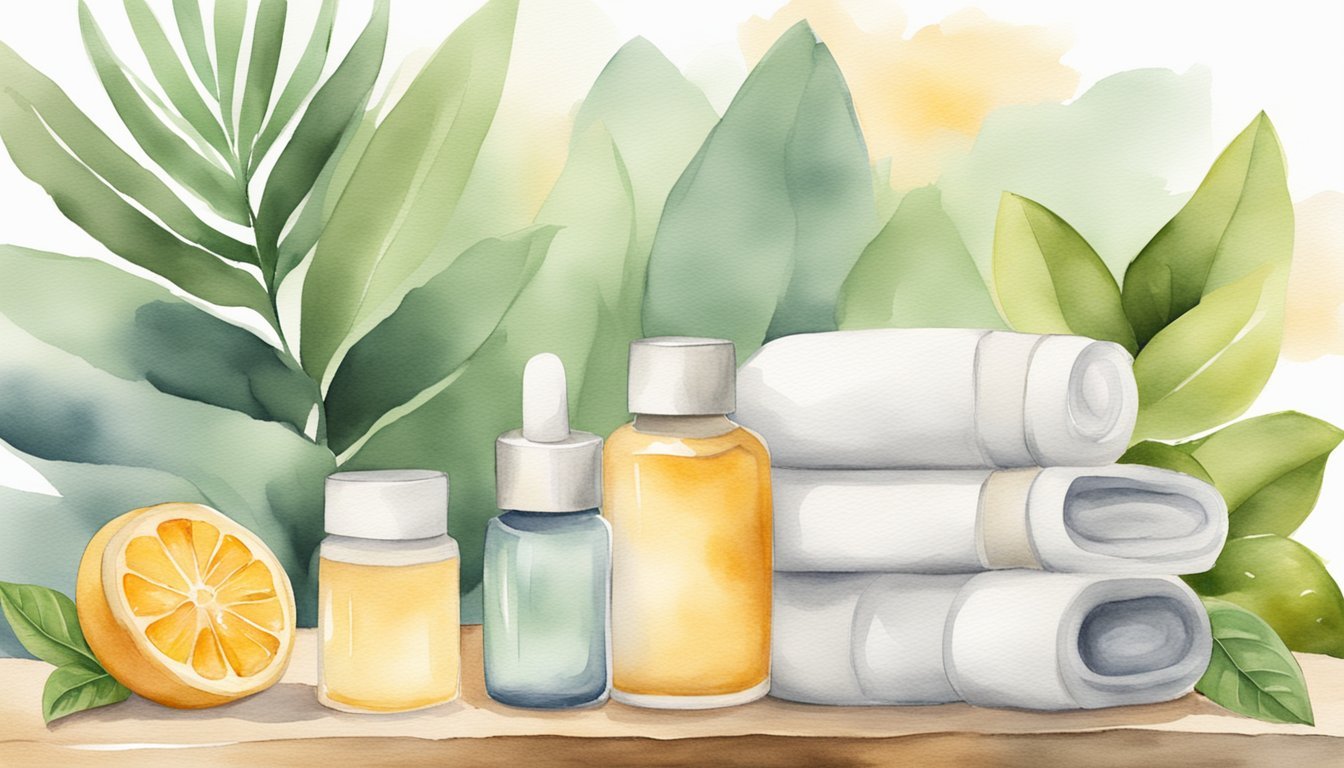Unlocking the Secrets of Vitamin C for Wrinkle Reduction
Vitamin C is not just a vital nutrient for overall health—it’s also a skincare powerhouse, especially when it comes to combating wrinkles. This section will explore the role of Vitamin C in maintaining youthful skin, evaluate the different types of Vitamin C serums available, and share insights from dermatologists on its efficacy.
Understanding Vitamin C’s Role in Collagen Production
Collagen is the protein responsible for giving skin its firmness and elasticity. As we age, collagen production diminishes, leading to fine lines and wrinkles. Vitamin C, particularly in the form of L-ascorbic acid, is essential in the collagen synthesis process. It acts as a co-factor for the enzymes responsible for stabilizing and cross-linking collagen molecules, which is crucial for maintaining skin texture and firmness.
Evaluating Different Forms of Vitamin C Serums
There are several forms of Vitamin C utilized in serums, each with its own set of benefits. L-ascorbic acid is the most active form and is renowned for its potency. However, it can be unstable and degrade quickly when exposed to light and air. To counter this, serums like SkinCeuticals C E Ferulic include ferulic acid, which helps stabilize the formula. Other derivatives, such as tetrahexyldecyl ascorbate and magnesium ascorbyl phosphate, are more stable and less irritating to the skin, making them suitable for people with sensitive skin.
Expert Insights: What Dermatologists Say About Vitamin C
Dermatologists recognize Vitamin C as an antioxidant that helps protect the skin from oxidative stress caused by free radicals, which can accelerate the aging process. They often recommend incorporating it into skincare routines as it has been shown to improve skin tone and reduce the appearance of wrinkles. They note products like TruSkin Vitamin C Serum and The Ordinary Vitamin C Suspension 23% + HA Spheres 2% as effective options for anti-aging care. Hyaluronic acid is frequently added to these serums to enhance hydration and firmness of the skin.
Holistic Skincare: Beyond Vitamin C

While Vitamin C is renowned for its brightening and anti-aging benefits, holistic skincare takes a more comprehensive approach, incorporating a variety of nutrients and practices to combat wrinkles and promote skin health.
Vitamin E and Other Antioxidants: Allies in Skin Protection
Vitamin E is a powerful antioxidant that works in concert with Vitamin C to strengthen the skin’s defense against UV damage and pollution. It’s particularly effective in protecting the skin from oxidative stress caused by free radicals, which are known to accelerate skin aging. Including skin care products rich in Vitamin E can enhance your skin’s natural protection and reduce the appearance of aging skin.
Antioxidants like zinc and iron play pivotal roles in maintaining skin health by helping to repair and regenerate skin. These ingredients can be found in a range of skin care products, from serums to moisturizers, and should be integrated into a regular skin care routine to help protect against environmental stressors.
Integrating Retinol and Peptides for Enhanced Results
Retinol, a derivative of Vitamin A, is a key ingredient that supports skin renewal and collagen production, making it a potent ally against wrinkles. When used in conjunction with peptides, small chains of amino acids that support skin firmness and texture, retinol can deliver even more pronounced anti-aging effects. For best results, apply retinol and peptide-containing products as directed, typically in the evening, as part of your nightly cleansing and moisturizing routine.
The Impact of Diet and Nutrition on Skin Health
The adage “you are what you eat” holds a kernel of truth when it comes to skin care. Nutrition rich in various vitamins and minerals contributes significantly to skin health. Diets high in fruits, vegetables, and lean proteins provide a wide array of nutrients, such as antioxidants and zinc, which combat sun damage and the effects of aging. It’s also important to keep skin hydrated; a sufficient intake of water aids in maintaining the skin’s elasticity and resilience against wrinkles.

